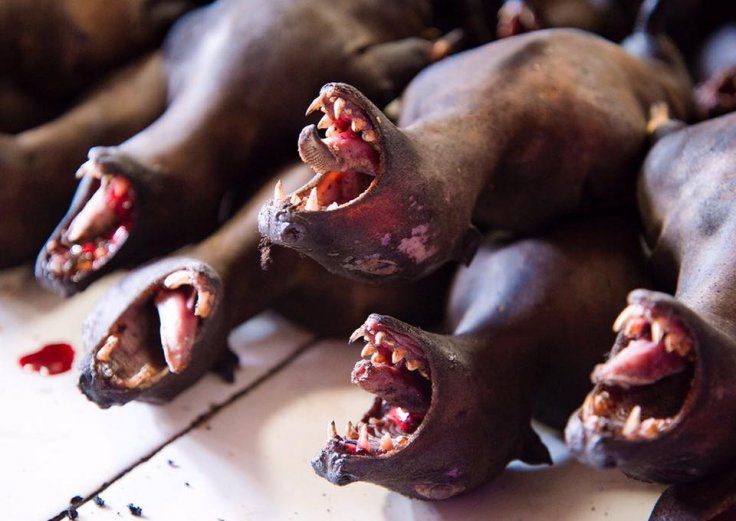
The sale of assorted wild animals in wet markets in Indonesia is going uninterrupted despite the death of more than 1,000 people in China from the deadly coronavirus. As of Thursday, the virus, officially named COVID-19, has killed more than 1,300 people. Reports say bats, wild boars, snakes, monkeys, dogs and an array of other exotic animals are still being sold at the Tomohon Extreme Market in Indonesia.
The Indonesian seafood market has been dubbed one of the 'scariest markets'. The latest report in Straits Times shows the Indonesians have thrown caution to the winds. An earlier report in February 2020 had said bats were off the menu at the market in North Sulawesi, as well as in nearby restaurants.
Though the actual source of coronavirus is still a debated topic among the scientists, experts have warned against the sale of these animals to avoid them becoming the breeding grounds of this deadly virus.
Paniki, a popular dish of bat meat stewed in coconut milk
Among some ethnic groups in Indonesia, bats are part of many popular dishes and many restaurants still serve bat meat stewed in coconut milk called Paniki, ignoring the warnings of the government. It is even surprising that the sale of bats has not slowed down in Indonesia despite the virus fears. The sellers at the market say that the business is booming with more tourists wanting to try these delicacies. Some of them even sell around 40 and 60 kilograms of bat meat every day.
So far, Indonesia has not reported any confirmed case of the coronavirus.
Bats — the carriers of many viruses
Experts suggest that coronaviruses are a large family of viruses that are common in different species of animals, like camels, cattle, cats and bats. The 2019-nCoV has been found as a betacoronavirus, like MERS and SARs, which have their origins in bats.
According to scientific studies, bats carry a variety of viruses that spread through their saliva, urine, faeces or by eating its undercooked meat. Till date, bat-borne viruses like rabies, Ebola virus, SARS, Nipah and many have transmitted to human beings directly from these mammals.
Initially, snakes were also suspected to be the potential source for the coronavirus outbreak, while many other experts proposed bats instead. However, as of February 2020, the research for the animal origin of the novel COVID-19 is still ongoing.
Check out the photos from Indonesia's wildlife market despite virus warning:
Take a look at the normal day at the scariest Tohomon market before the coronavirus outbreak:
Asia's SCARIEST Meat Market! Dog, Cat, Rat, Bat and more at Tomohon Market in North Sulawesi - https://t.co/Vdh0c8WevE
— Censored News UK?? (@MyFreedomNews) February 12, 2020








